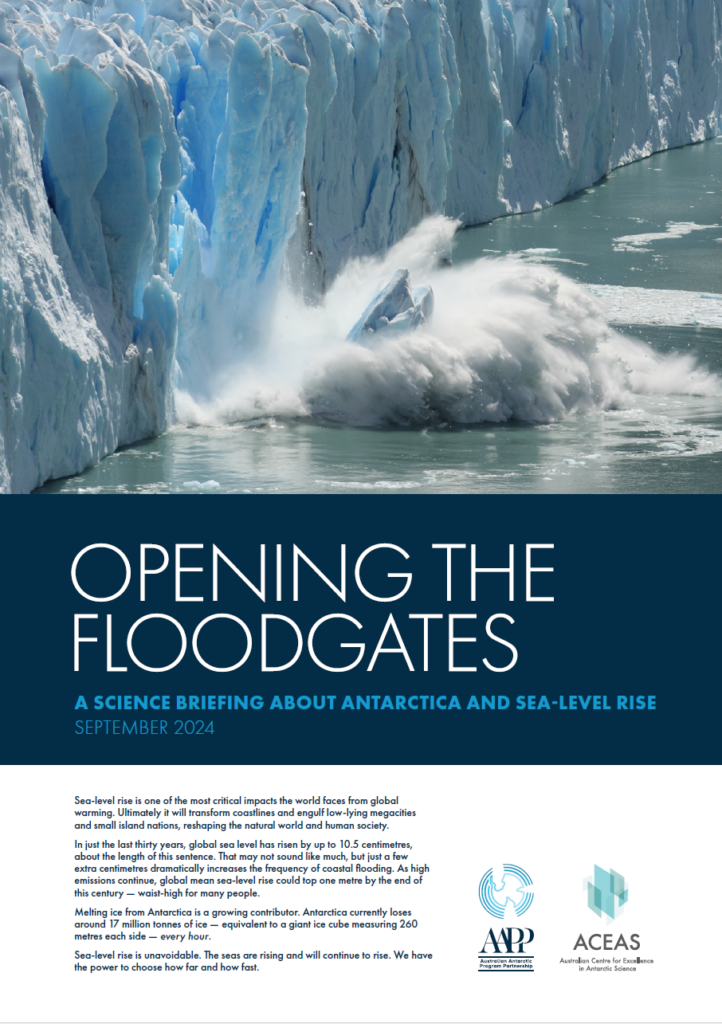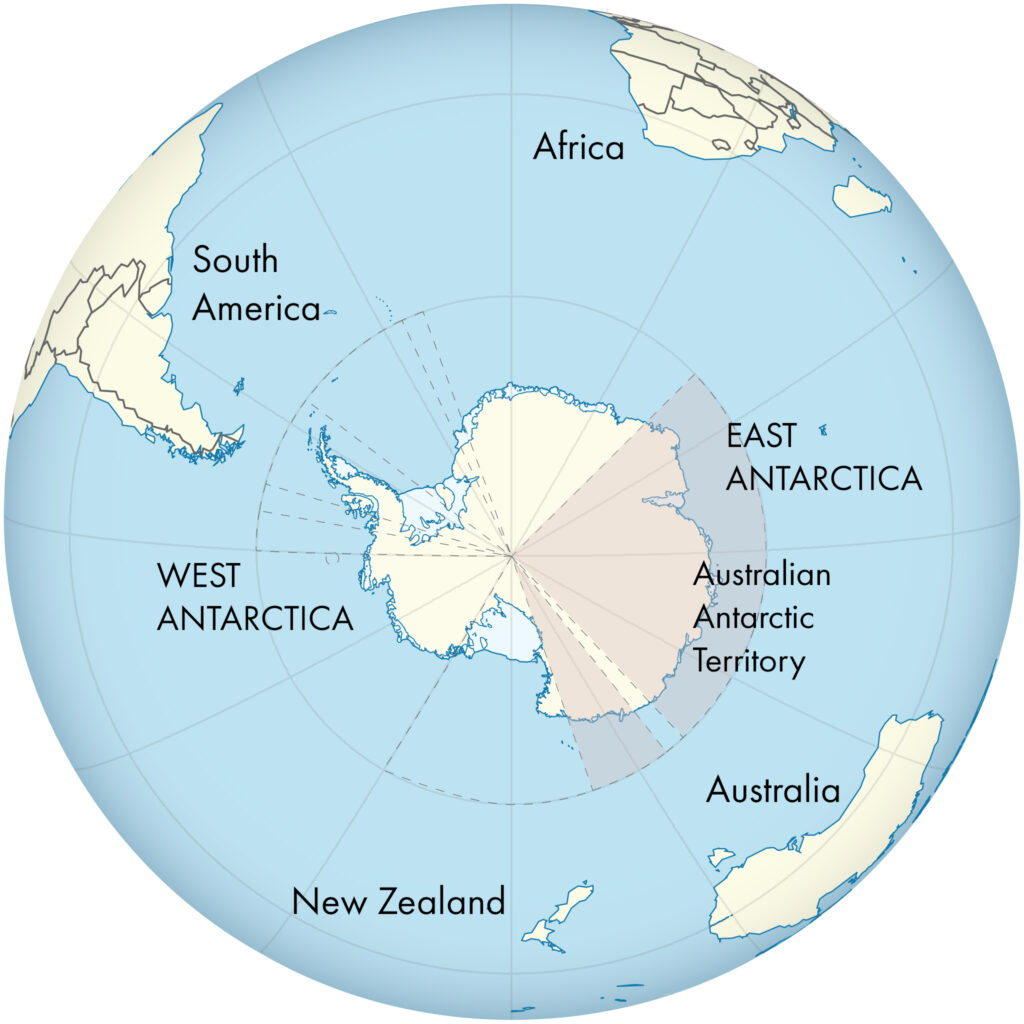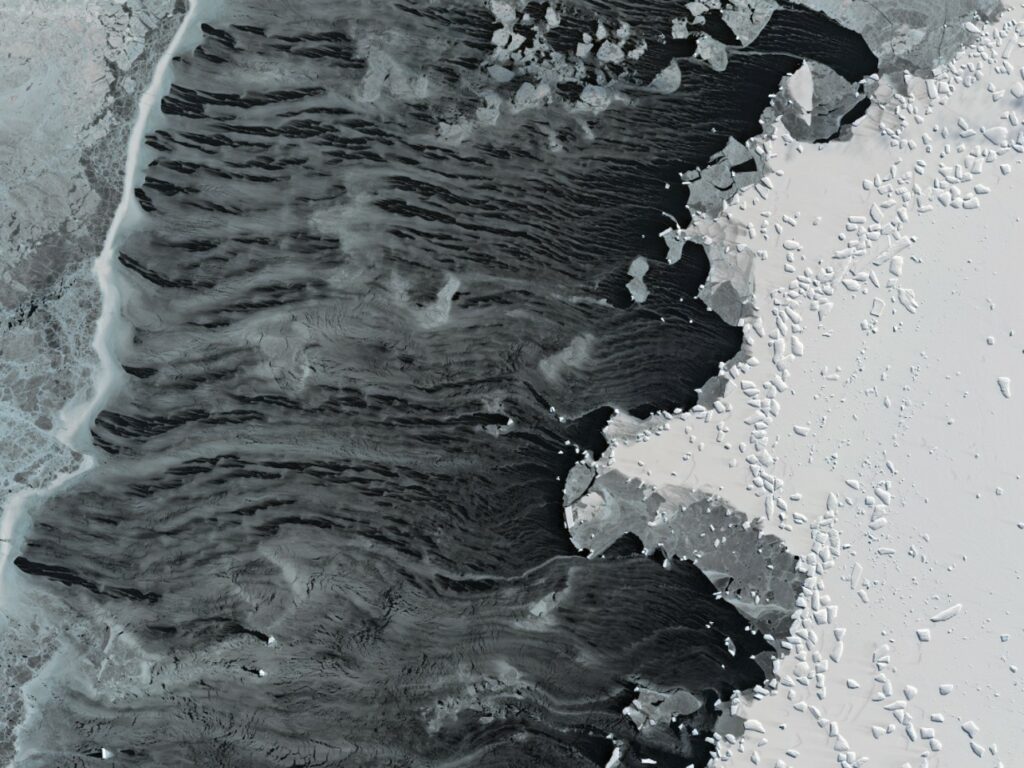Opening the floodgates: Will Antarctica reshape the world?
11 October 2024
Two major Antarctic research organisations are offering personal briefings to Australian politicians and policymakers about the urgent need to consider sea-level rise from melting ice when setting targets for emission reductions.
The Australian Antarctic Program Partnership (AAPP) and the ARC Centre for Excellence in Antarctic Science (ACEAS) comprise students and researchers based at the University of Tasmania in Hobart.
The organisations have published a briefing paper entitled “Opening the floodgates: A science briefing about Antarctica and sea-level rise” and mailed it directly to more than 600 local, state and federal politicians, government agencies, and community organisations with an invitation for face-to-face meetings.
AAPP leader Professor Nathan Bindoff said that long-term sea-level rise is one of the most critical impacts the world faces from global warming, and the contribution from Antarctica is increasing.
“In just the last thirty years, global sea level has risen by up to 10.5 centimetres. That may not sound like much, but the frequency of coastal flooding from storm surges dramatically increases with each centimetre.”
“The largest potential source for global sea-level rise is Antarctica, the largest ice sheet on Earth. Ice loss is accelerating, and now satellite data show increased ice losses in areas of East Antarctica since the early 2000s.”
“This is deeply concerning as the East Antarctic Ice Sheet contains most of the Earth’s glacier ice, with much of it below sea level and vulnerable to melting from a warming ocean. Predicting how much this region will contribute to sea-level rise is critical to the welfare of the global community.”

ACEAS director Professor Matt King said that the rate at
which Antarctic ice will continue to be lost is deeply uncertain.
“If high emissions continue, global mean sea-level rise could top one metre by the end of this century — waist-high for many people.”
“But ice sheets are susceptible to ‘tipping points’ where rapid and irreversible change occurs, and ice-sheet retreat continues to accelerate even if temperatures are stabilised.”
“Whether such tipping points have already passed is currently unknown. If they have, rates of sea-level rise will likely exceed current projections. The greatest source of uncertainty in sea-level rise projections is from East Antarctica, which covers all of Australia’s Antarctic Territory.”
“Australia should play a leading role in the urgent international science needed to better understand how much and how fast the East Antarctic Ice Sheet will continue to change.”
The paper proposes the best defence against rising sea levels is to ‘bend the carbon curve’ on emissions as quickly as possible.
“As the Intergovernmental Panel on Climate Change (IPCC) makes clear, rapid reductions of emissions will mitigate catastrophic impacts for future generations”, the professors said in a cover letter.

MULTIMEDIA FEATURE: Opening the floodgates: A science briefing about Antarctica and sea-level rise



